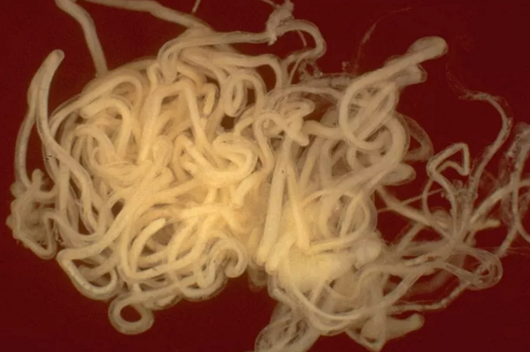This is a problem that has plagued scientists: Parasites can cause deadly epilepsy. At least 17% of children affected by seizures are in parts of Uganda, making the patient look like they involuntarily nod. Right now, this disease is incurable, but today's results mean there are likely ways to prevent it and reduce treatment for the future.
By testing blood and spinal fluids in people living in Uganda and southern Sudan, scientists have identified antibodies that are more common in people with epilepsy, called nodding-head syndrome. This antibody in the human brain, looks very much like a parasite, which shows that nodding head syndrome may have a kind of immune-injured protein attack protein.

These worms can cause epileptic seizures through an immune accidental injury. When some people are infected with the parasite, they produce antibodies to fight off and one can also kill brain cells. The researchers proposed scientific translation medicine in the journal. One of the reasons is that it is not yet clear that this antibody actually causes the attack of attacking brain cells. Another, only half of the patients with nodding syndrome were this antibody, which means something else must be made positive for the remaining convulsions.
For years, researchers have been skeptical about the connection between a little head syndrome and a parasite. When the worm's larvae enter, they create wounds, and the larvae take up the skin where they live. There, the worms can grow to nearly 20 inches long, and they cluster into very small clumps, there are many sites for these infections, and there is often a lot of head syndrome. But strangely enough, these worms do not seem to enter the human brain. So exactly how they can lead to seizures has always been a mystery.
The researchers found that from the patient's nodular syndrome about half of the blood samples that contained a high amount of specific antibodies called leiomodin-1 were found in brain cells. In contrast, this protein looks very much like a parasite's protein. This is why scientists believe that when humans infect this parasite, some of them produce antibody resistance and also inadvertently kill protein brain cells.
There may have been other antibodies that have not yet been identified, and the research team could not clearly state that people had leiomodin-1 antibody responses to the parasites because they had previously been unable to communicate with people after they were infected. Therefore, they have more work to do. These findings may help finalize the path for nodding disease.
Rubber Roller,Machinary Rubber Roller,Custom Rubber Roller,Multi-Functional Rubber Roller
Wuxi Sixleaf Machinery Co. LTD , https://www.wxsixleafmachine.com